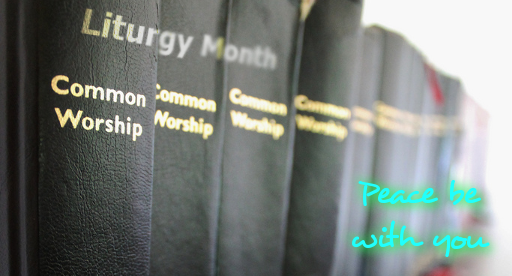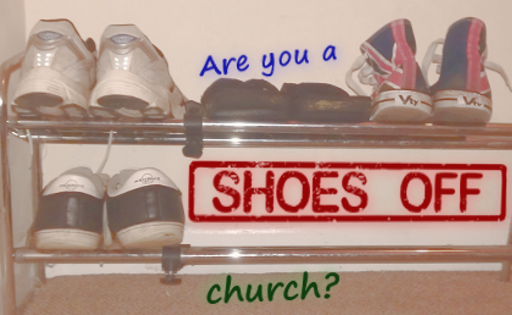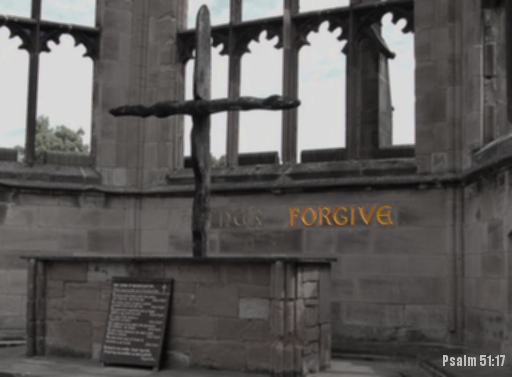My strongest memory of a Catholic church I once visited was the sharing of The Peace. At the time, it was the warmth and the sense of community that exuded from it that struck me. In that one moment, church stopped being a bunch of individuals following the pulpit, and it became an assembly that cared visibly for one another, including the rather uninterested visitor that I was. As I then went to more charismatic churches, it was a long time until I followed any traditional liturgy, but I still reminisced upon that Sharing of The Peace fondly. I was very pleased when I found it again in an Anglican church, but, unbeknownst to me, it wasn’t done “properly”: The Peace was shared right at the end of the service, before tea and coffee; and so it felt just like a greeting.

Photo: Charles Clegg, reused under CC License
There is definitely a social function to the Sharing of The Peace; and it would be a mistake to downplay it. Through it, we are bonding with one another, using the strongest bond possible: the Peace of Christ (which, as we know, passes all understanding). And that is true regardless of where in the service this handshaking happens. For that reason, all forms of greeting are appropriate: it does not have to be a handshake; it can most definitely be a hug. Hugs are cool.
But, normally, the Sharing of The Peace happens right before communion – in preparation towards it. Obviously, this reduces the social function, as it is not quite as easy to remain chatting then as it would at the end of the service; so why put it there? Is it somehow necessary to be at peace before receiving communion? In that case, the sharing of the peace is making us worthy to approach the table… er… yeah, maybe not. As, even when we approach it, we are not worthy to do so in our own strength, regardless of our feeling the peace of God.
Therefore, the Sharing of The Peace is gearing towards the same thing as communion. It is (at least symbolically) an expiatory moment, linked with the recognition and conviction of our own sins before our acceptance at Christ’s table, not as people who are worthy of coming into His presence, yet as people who can do so without hiding their baggage.
When we say to others “Peace be with you”, at least in the context of communion, it’s not merely a greeting: it is a prayer that, much like Zacchaeus or the woman at the well, we would find our eyes open to our own sin and be ready to confront them, dismiss them and find peace.
—
This time, the recorded sermon below is not a perfect match with the “summary” above, although there is significant overlap.
Audio clip: Adobe Flash Player (version 9 or above) is required to play this audio clip. Download the latest version here. You also need to have JavaScript enabled in your browser.
Download link (right click, hit download) – Notes




